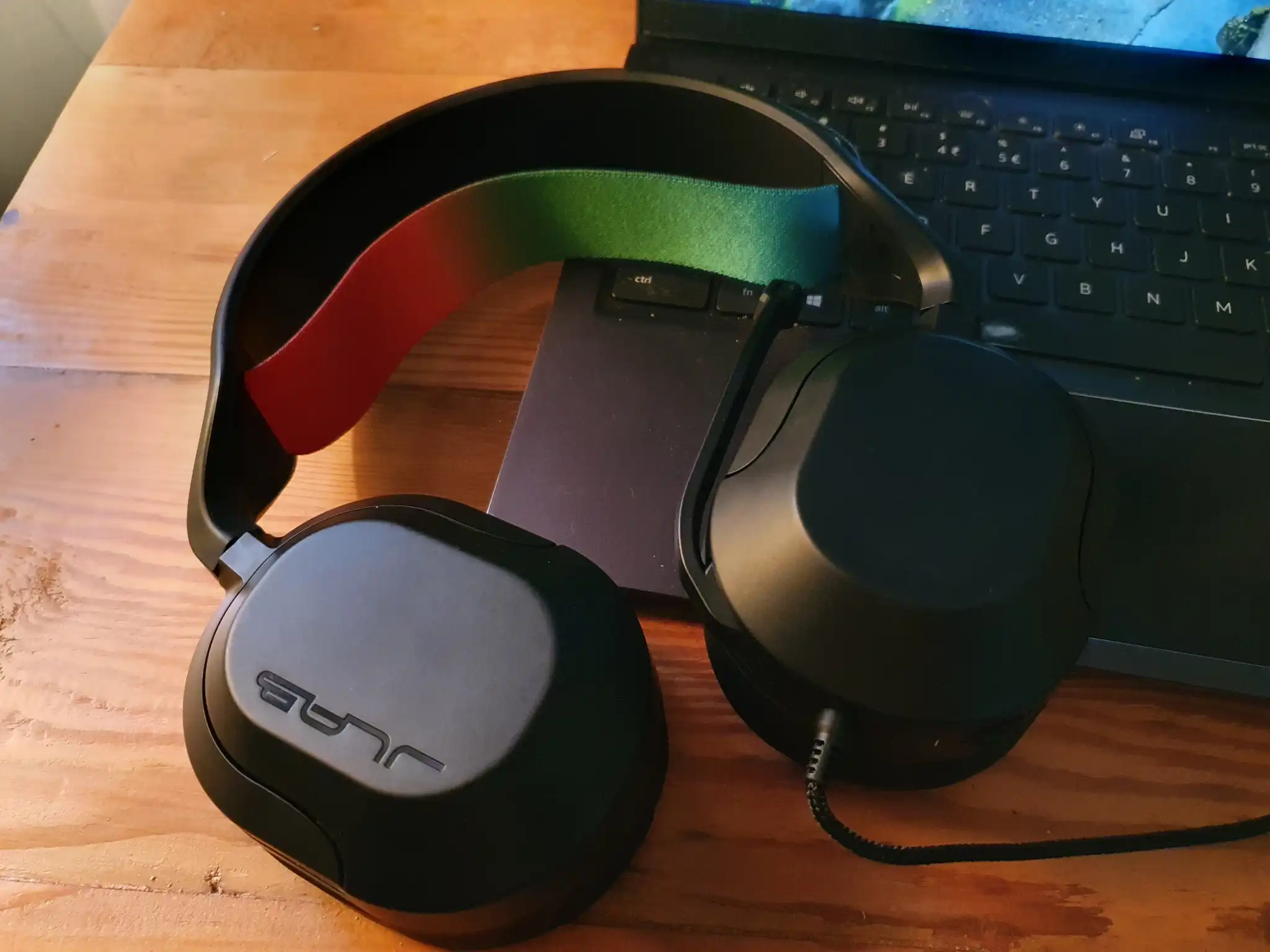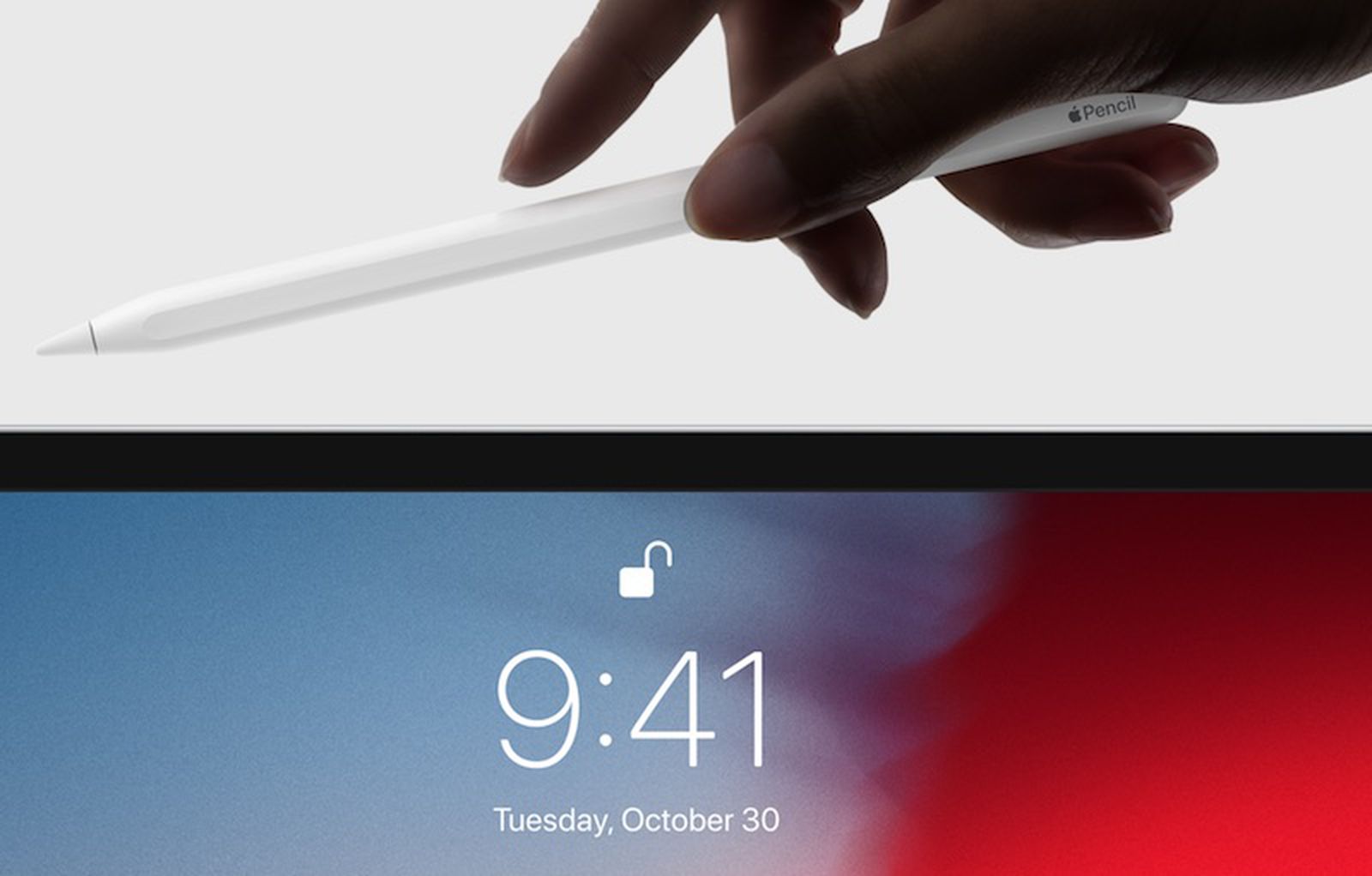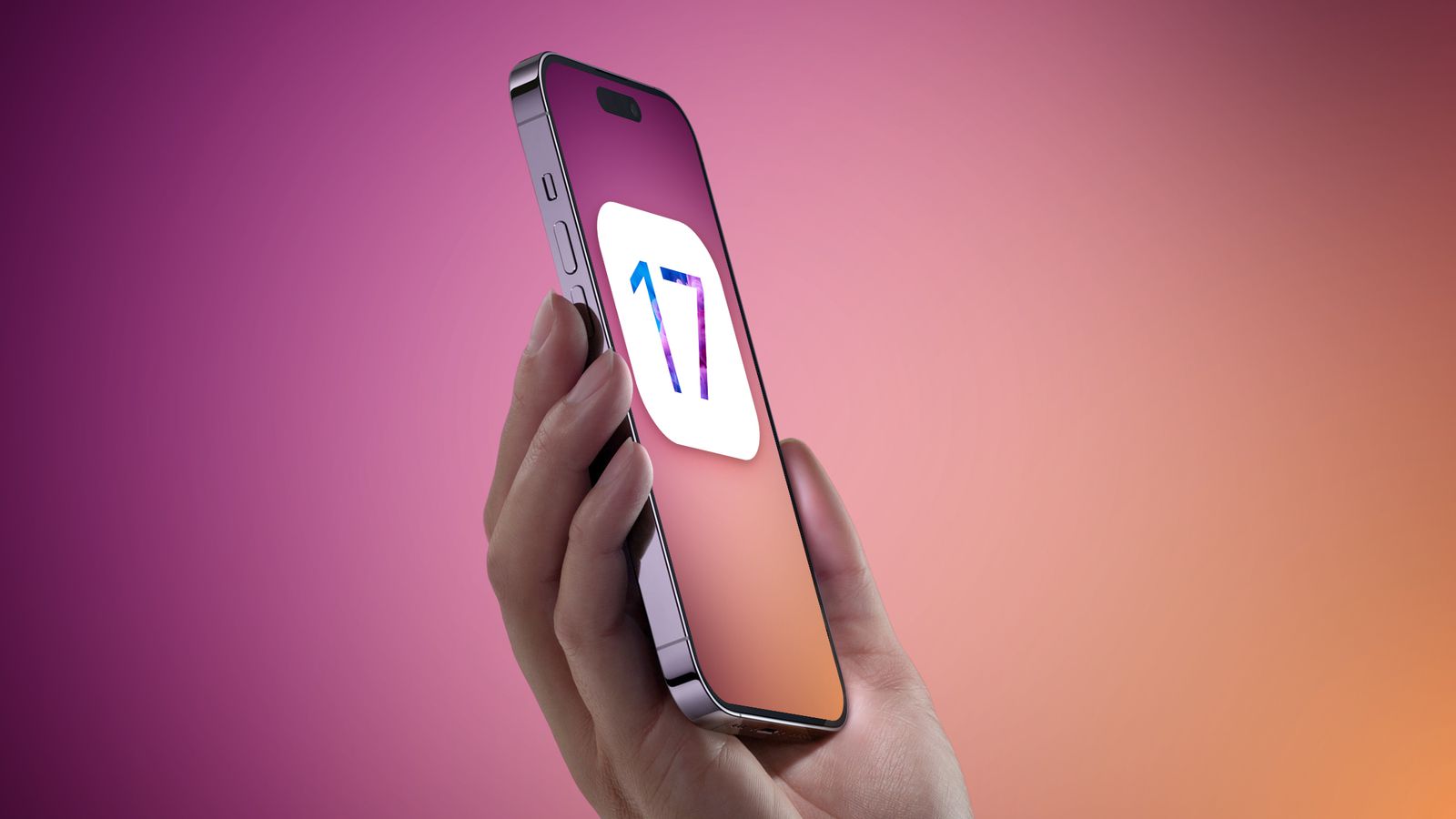This gaming headset costs the same as a meal out!
Pros
- The audio sounds crisp and clear
- Great movement in the earcups
- It’s so lightweight
Cons
- The mic in my review model was faulty
- The mic is also not detachable
- The earcups can’t be vertically adjusted
Our Verdict
While the JLab Nightfall has got a lot going for it — quality audio, comfort, and plenty of gamer-centric style, it’s somewhat let down by sub-par microphone performance, which makes team chats a less than fun experience.
The JLab Nightfall is the first in a lineup of products from JLab that look likely to make waves in the budget gaming category, if its audio quality, comfort, and styling is anything to go by. When I say budget, the Nightfall is extremely well priced — you can expect to pay $39.99 for a cheap meal out these days, so it seems a small price to pay for a well-made pair of headphones with 50mm audio drivers.
Yet despite everything this headset has going for it, a big question mark hangs over its mic performance, which included a lot of static feedback in my playtesting. Read on to find out more.
JLab Nightfall design and build
Lightweight plastic dominates the Nightfall’s build, which is unsurprising considering the headset’s $39.99 price tag. I’ve worn some light gaming headsets in my time, but this has to take the cake for loftiness, weighing in at just 8.8 ounces (250 grams) — that’s lighter than even my baseball cap. That being so, wearing it from dawn to nightfall (pardon the pun) was very comfortable indeed.
I find proper bass is so often lacking in budget gaming headsets that it’s refreshing to find one that can really drop a beat.
As if I needed any more weight dissipation, the JLab Nightfall also has a strap headband that kept the weight of the band off the top of my head. It’s conveniently adjustable and decorated in neon colors so you get a nice pop of color in the absence of any RGB lighting. It’s also reversable in case a mostly black look is preferable. The headset’s oval-shaped earcups are compact and stylish. There aren’t any sliders to adjust the height, but they still fit me snugly. I was surprised to see leatherette coverings on the outer rims — it being a material often reserved for more premium headsets. Regardless, I enjoyed the smooth and luxurious feel, which was only accentuated by the headset’s super-soft Cloud Foam ear cushions. The pressure from the cushions and headband is very light but it makes an effective seal for passive noise isolation.
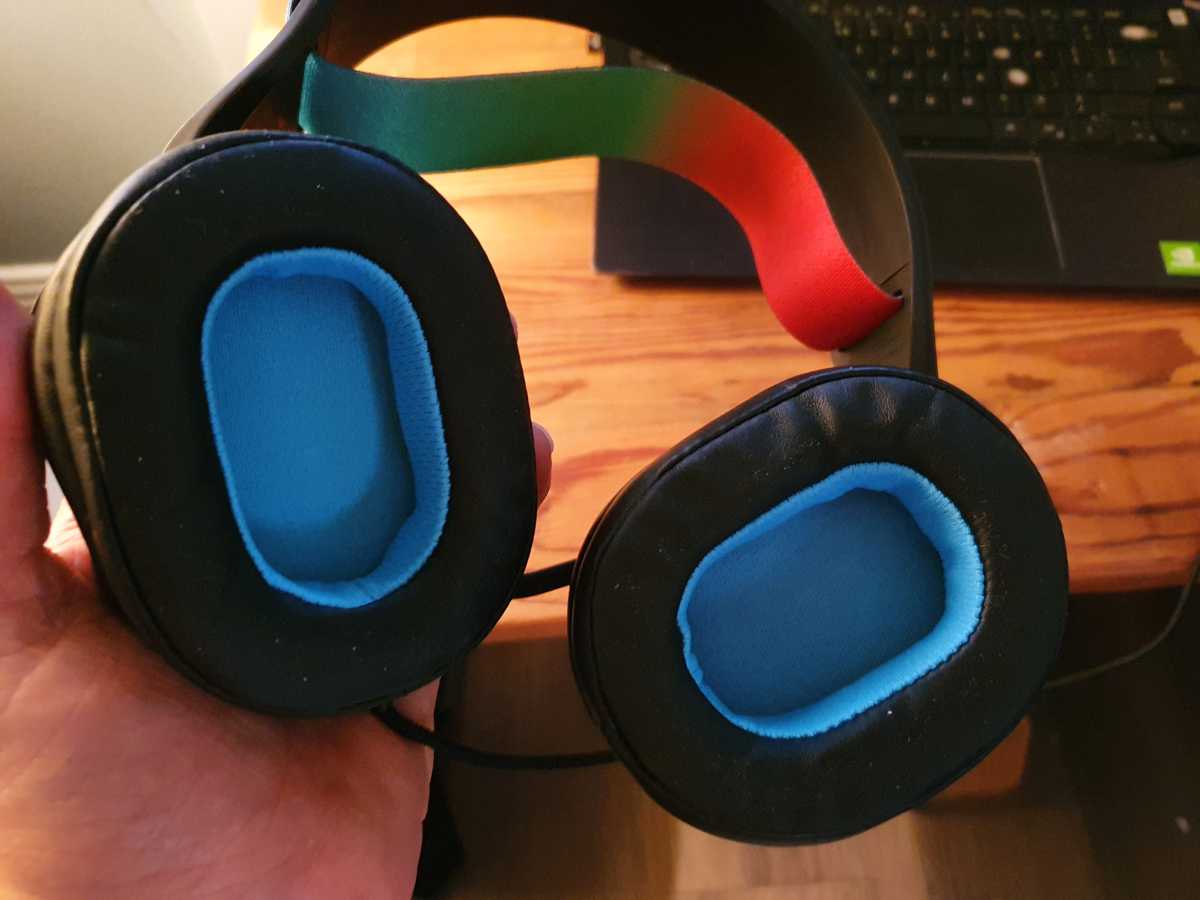
Dominic Bayley / IDG
JLab has really done its homework to match the headset’s feature-set to gamer expectations, even on a budget. That’s obvious in the swiveling and tilting movement you get in the cups, which allowed me plenty of free movement. The shimmering JLab logo on the right-hand earcup also adds a touch of gamer-centric style that really looks the part.
Is the Nightfall flimsy? No — for the materials used I found it to be very well made — but it may be more susceptible to breakage because of the absence of any metal at vulnerable junction points. While I didn’t want to ruin a personally good headset to find out how tough it really is, I kept mine tucked away in a case after using it.
JLab Nightfall connectivity and controls
The JBL Nightfall has just simple wired connectivity via a 3.5mm jack, so any device or device controller with a 3.5mm Aux-in is fair game, including an Xbox 360, Xbox X/S, PlayStation 5, Nintendo Switch, desktop PC, and some Android and iOS cellphones.
Although I was tethered to my devices, the headset’s shoelace-like cord is a decent 5 feet, 8 inches long, so I had plenty of room to move my head around. It was flexible enough to float around the top of my desk rather than catching on things, so I never had to worry about my neck being pulled one way or the other.
A volume wheel is the headset’s sole on-ear control — this really is a simple headset to use — you just plug it in and let a finger scroll the wheel for amplitude.
EXPLORE FREQUENTLY ASKED QUESTIONS
- Are the audio sounds crisp and clear on the JLab Nightfall headphones?
- How comfortable are the JLab Nightfall headphones for extended gaming sessions?
- Does the faulty microphone affect team chats while using the JLab Nightfall headphones?
- Can the earcups of the JLab Nightfall headphones be adjusted vertically?
- Is the JLab Nightfall a budget-friendly option for gamers?
JLab Nightfall gaming performance
Looking at the price, I wasn’t expecting the Nightfall’s audio to be all that. Suffice to say, I was pleasantly surprised. Its sound is delivered by 50mm drivers, which produce a punchy and crisp audio image. In games like CounterStrike: Black Ops, for example, footfalls sounded close by, and bullets ricocheting, lively and vibrant.
I never found ambient noise to be a problem despite there being no Active Noise Cancellation — and the headset was so light, I could wear it longer than any headset I own, which meant epic marathon gaming sessions.
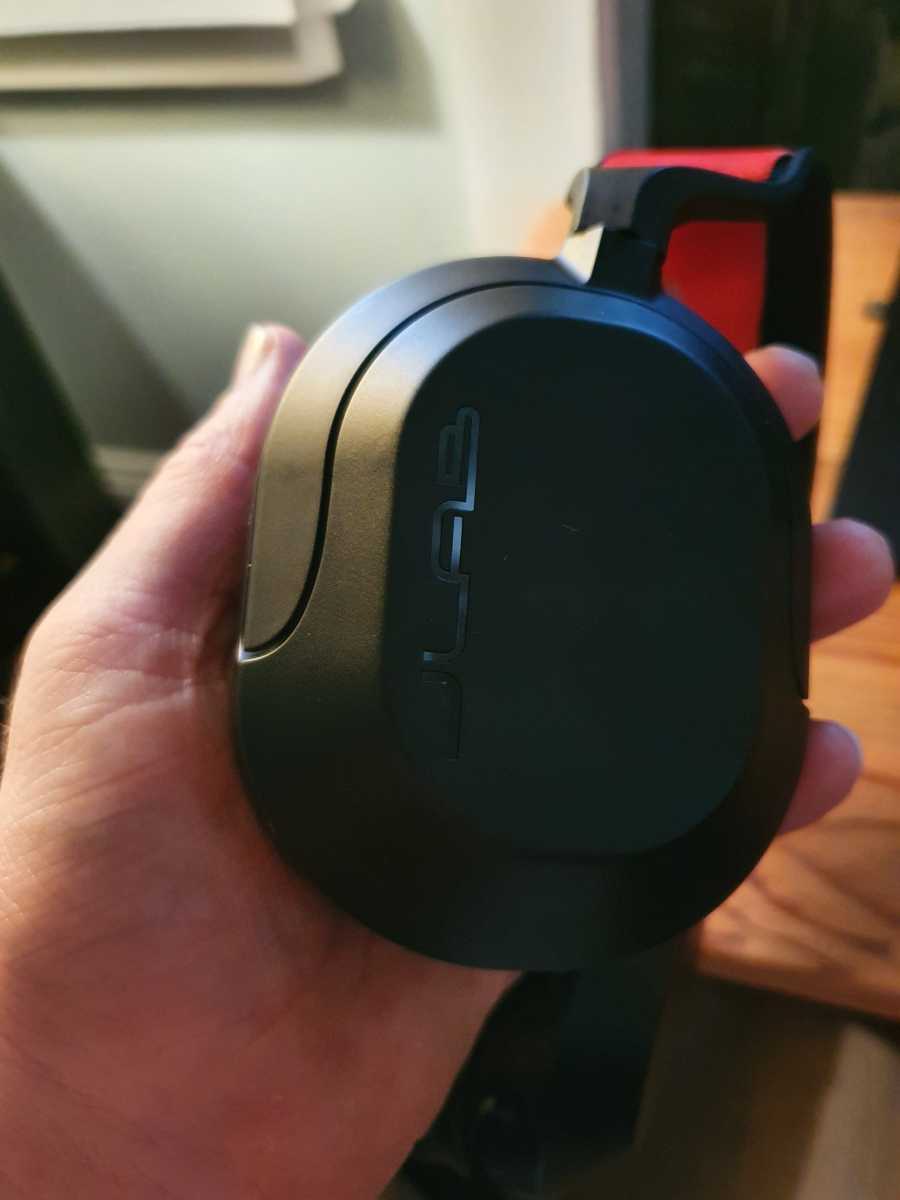
Dominic Bayley / IDG
The Nightfall also has spatial audio support, which for a sub-$100 pair of cans is another great bonus. Here, I didn’t get the kind of pinpoint sound I’ve gotten from DTS surround sound, or Dolby Atmos, but it does convey distance and directionality quite well. There were also no issues with the headset’s stereo, or any distortion in the audio signal coming through the cans.
One worthwhile observation is that bass frequencies seem to be more dominant than highs or mid tones. If you’re listening to your game’s theme music, for example, heavy bass notes are the punchiest notes you’ll hear. Still, I find proper bass is so often lacking in budget gaming headsets that it’s refreshing to find one that can really drop a beat. Besides, you still get nice neutral mids and highs that are bright enough to stand out over these low tones — the lows just sound a little stronger, is all.
JLab Nightfall microphone performance
The Nightfall’s near-field directional flip-to-mute microphone conveniently folds up into the headset so that I could pack it away. Testing the mic was a little disappointing — it turns out that it suffers from a feedback problem which infused my audio stream with a constant background static whenever I tried to use it for team chat. This was tolerable for a short period of time, but like a TV constantly stuck on a fuzzy signal, in the end it spoiled some of the fun.
JLab reached out to let me know this problem is likely due to me having a faulty pre-production media sample with hardware that’s slightly different from the production units currently on sale.
A spokesperson says the problem has now been fixed, which I’m keen to hear; we tech editors like to think everything’s hunky dory early in a product’s lifecycle, but that’s rarely the case. Unfortunately for a 3.5mm wired device, you can’t simply fix a problem with a firmware update like you sometimes can with USB headsets. Considering the intel from JLab, though, I’ve requested a new unit and will log an update on performance once it arrives — so watch this space.
Should you buy the JLab Nightfall?
Regrettably, based on how the JLab’s microphone performed for me this time around, I can’t currently recommend the headset for anything other than solo gaming. This issue virtually ruled out any kind of functional team chat on my part. If you’re unlucky to get static like I did, it will likely have your gaming buddies telling you to pipe down, or else the game’s admin will probably just mute you.
That said and granted you do get a set with a working mic, the JLab Nightfall would be excellent value. At $39.99 it’s a lot cheaper than headsets like the SteelSeries Arctis Nova 1 and Asus ROG Strix Go Core Moonlight White, has great audio quality, a comfy fit and enough style to be likable. Here’s hoping a post-production set arrives that can show up my sample for what it most likely is — just a pre-production model with a teething issue.

